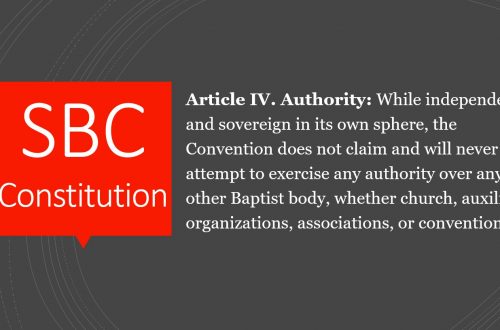 In my last post, I noted that California has just become the first state in the union to outlaw therapies aimed at altering the sexual orientation of minors. If you read the law, you’ll find that the vast majority of it is taken up with explaining the medical basis for prohibiting these therapies—including some rather negative assessments of reparative therapy in particular. In the opening section of the law and in other writings on this story, I see persistent misunderstandings about what reparative therapy actually is. Consequently, there’s a good bit of confusion about how Christian teaching relates to this particular therapy. Here’s the definition given in Joe Dallas’ and Nancy Heche’s book The Complete Christian Guide To Understanding Homosexuality (Harvest House, 2010), 104-105:
In my last post, I noted that California has just become the first state in the union to outlaw therapies aimed at altering the sexual orientation of minors. If you read the law, you’ll find that the vast majority of it is taken up with explaining the medical basis for prohibiting these therapies—including some rather negative assessments of reparative therapy in particular. In the opening section of the law and in other writings on this story, I see persistent misunderstandings about what reparative therapy actually is. Consequently, there’s a good bit of confusion about how Christian teaching relates to this particular therapy. Here’s the definition given in Joe Dallas’ and Nancy Heche’s book The Complete Christian Guide To Understanding Homosexuality (Harvest House, 2010), 104-105:
Reparative therapy is a phrase referring to counseling, psychotherapy, or other forms of psychological treatment for homosexuals who are in conflict over their sexuality. It first became prominent with the 1991 publication of Dr. Joseph Nicolosi’s book Reparative Therapy for Male Homosexuality and soon became a common term of reference. It derives from a theory (shared by Dr. Nicolosi with others) that homosexuality represents unmet emotional needs or conflicts that need repairing, in which cases therapy should attempt to repair the damage or deficits the person experiences. It is a controversial term, sometimes used as a pejorative by those who oppose attempts to modify sexual orientation. It is also used in a more neutral or even respectful tone by those who condone it, and practitioners of it often refer to themselves as “reparative therapists.”
“Reparative therapy” should not be used as an umbrella term covering every treatment approach for women and men with unwanted homosexual desires. Other forms of counseling or therapy may be designed to help such people, but without subscribing to all the tenets of reparative therapy. Some counselors, for example, may support their client’s goal to abstain from homosexual behavior, yet they may not believe male homosexuality always springs from deficiencies in father/son relationship, or that gender-identity issues always contribute to homosexuality. Likewise, not everyone who offers treatment for people in distress over their homosexuality should be referred to as a “reparative therapist.” The term is properly used when referencing treatment approaches and practitioners subscribing to the theories and approaches cited above.
So reparative therapy is an approach based on the assumption that homosexuality has a psychological pathology. It’s not an attempt to “pray away the gay,” as some people derisively charge. In fact, the approach has no necessary religious basis at all—though some Christian therapists may follow its tenets.
It’s not the only approach that counselors use to help someone alter their sexual orientation, but it is the one that is cited heavily and denounced as bad science in the new California law. In the words of California Governor Jerry Brown, “This bill bans non-scientific ‘therapies’ that have driven young people to depression and suicide. These practices have no basis in science or medicine and they will now be relegated to the dustbin of quackery.” Nevertheless, the new law outlaws all therapies aimed at changing sexual orientation/behavior, not just reparative therapy.
And this is the real point of concern for Christians. Christians have no moral obligation to subscribe to the specific tenets of reparative therapy, but we do have an obligation to believe that the Christian gospel can save and sanctify sinners. Thus Christians must insist that sexual orientation/behavior is alterable. We believe that not on the basis of any particular study—although there are studies that support the claim—but on the basis of what the Bible teaches. That does not mean that we believe all homosexuals become completely cured of homosexual desires once they become Christian. But it does mean that we have hope in the progressive sanctification of all repentant sinners, including homosexual ones (2 Cor. 3:18). Some Christians may find themselves struggling against homosexual desires for the rest of their lives as Christians. Nevertheless, Christians do believe that God can alter sinful desires and behavior over time, including homosexuals ones (Phil. 2:12-13). To abandon that belief is to abandon Christianity altogether (1 Thes. 4:7-8).
It’s here that Christians are likely to feel the pinch in the coming years. As states like California find a “compelling interest” in protecting minors from Christian teaching about sexuality, there will be tremendous social (and perhaps legal) pressure to abandon any notion of changing sexual orientation. But Christians cannot surrender to this pressure, no matter what the cost may be.




6 Comments
David (Dave) Dunbar (@davidjdunbar)
That last paragraph, Denny, is right on the mark.
They may even try to make us stop saying that such behaviors are wrong/sinful at all. We may find ourselves in hot water merely for reading Romans 1, 1 Cor. 6:9, or 1 Tim. 1:10. But, like Paul, we can be a witness in jail — like you said, “no matter what the cost may be”.
Denny Burk
Right on, Dave! Great to hear from you!
rob
Denny, you write about this issue a lot; however, I am not always sure why. Do you think this method of addressing this very sensitive issue is effective? Who is your audience for these posts? Are you trying to shore up the “troops” for the impending culture war? The tone of your posts sound like it. “Us” vs “Them” tribalism abounds. Certainly you can’t expect these posts to be redemptive? I doubt any individual struggling with this issue and wanting to cling to orthodox Christian teaching on the matter will find this tone beneficial. In fact, often they come across ad defensive and off-putting.
Reparative therapy has been harmful to countless individuals. Admit it instead of trying to defend it. Trying to defend it does nothing for making a positive way forward in the discussion. Yes, Christians are called to hope: hope for sanctification, hope in participation in the sufferings of Christ, and hope for the resurrected untainted body. Yes, we are called to hope, but hope doesn’t have to take the form of “reparative therapy” to be hope. The hope of the resurrection is much bigger than one faulty form of therapy. We can embrace the good while still acknowledging the faults of some forms and methods.
Yes, I get the slippery slope that Christians are afraid of when it comes to political legislation, but let’s stop arguing over politics and begin fighting for individuals and souls on the front lines of this issue. Create posts that are redemptive not defensive. I would like all of the activist Christians who showed up to Chick Fil a and other events to maybe get to know/love/embrace/and learn from someone who struggles. Then, they might be able to talk in a more meaningful way about this topic. Then, they may be able to move beyond defensive rhetoric to redemptive rhetoric.
Denny Burk
Rob,
In my post, I said that no one needs to believe in the tenets of reparative therapy in order to be a faithful Christian. In fact, I don’t hold to the tenets of this method as they are desccribed above. I think that some people are just born with same-sex attraction that may not be explainable to some deficiency in their formative years. They are just born that way. In a fallen world, such things happen.
If you have some factual information about the destructive effects of reparative therapy, then by all means share. Nobody’s stopping you backing up with facts your claim that “Reaparative therapy has been harmful to countless individuals.” But make sure it’s factual. Just because you disagree with a position doesn’t mean that you can misrepresent that position or its proponents.
Denny
rob
Denny,
Thanks for your response. However, I think the the point of my last comment was missed. I am not trying to defend a position on reparative therapy and offer argumentation thereto. I could do so by offering scholarly studies, personal illustrations, and the like. However, I don’t want my comments to have a defensive tone. I am glad to hear you don’t personally hold to Reparative Therapy.
On the other hand, my comment to you was broader than simply discussing Reparative Therapy. If you notice, my first sentence said, you “write about this issue a lot.” I would assume that we would share the referent of the pronoun as being “same-sex attraction” and not Reparative Therapy, as the latter would invalidate the statement due to frequency.
That said, this issue (same-sex attraction) is contentious enough without promoting defensive rhetoric, which is present in many of your posts. Your tone regarding this topic often sounds very defensive and uncharitable. Again, I will state, “I doubt any individual struggling with this issue and wanting to cling to orthodox Christian teaching on the matter will find this tone beneficial. In fact, often they come across ad defensive and off-putting.” That said, who is your audience and what are you trying to accomplish in these posts? I simply don’t see how these posts are beneficial and helpful for making you an agent of reconciliation; when you, an individual with a great platform, positions yourself in this manner. Please use the “voice” God has given you responsibly and redemptively. There are too many people who have been hurt over this issue for the church to continue to be irresponsible with their words.
I don’t want to argue over this issue but desire to offer you some constructive criticism regarding your role as a blogger and the public platform God has given you. Please know it comes with a desire to see your ministry enhance.
Denny Burk
Oh, I see what you’re saying. The short answer is that I think that gender issues are a watershed right now in our culture. The church is facing a mounting threat from the outside to surrender its confidence in scripture when it comes to sexual morality. The threat is also coming from within in some quarters. So I am particularly urgent about this issues.
As far as tone is concerned, what particularly from this post did you find off-putting? I don’t mean to have an ungracious tone. So what are you talking about in particular?